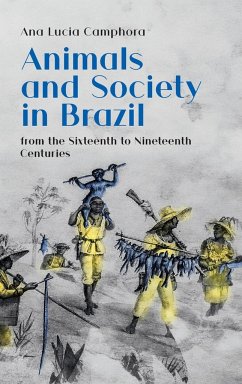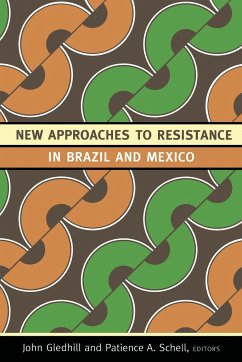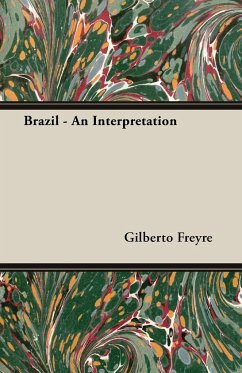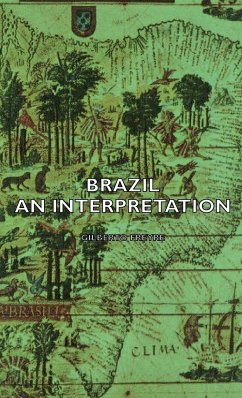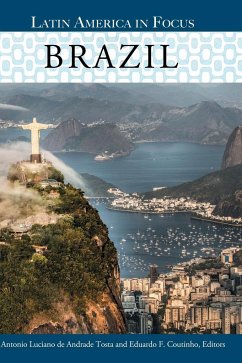
Maria Graham's Journal of a Voyage to Brazil
Versandkostenfrei!
Versandfertig in 1-2 Wochen
34,99 €
inkl. MwSt.
Weitere Ausgaben:

PAYBACK Punkte
17 °P sammeln!
MARIA GRAHAM'S JOURNAL OF A VOYAGE TO BRAZIL is a scholarly edition of nineteenth century travel writer Graham's travel narrative first published in 1824. One of only a few women travelers to have written about her experiences in South America in the early nineteenth century, Graham provides an invaluable first-hand account of Brazil and its transformation from a Portuguese colony to an independent nation. She offers not only observations about social customs, politics, and the role of the British in South America but also insights into Brazilian slavery at a time of rising abolitionist activi...
MARIA GRAHAM'S JOURNAL OF A VOYAGE TO BRAZIL is a scholarly edition of nineteenth century travel writer Graham's travel narrative first published in 1824. One of only a few women travelers to have written about her experiences in South America in the early nineteenth century, Graham provides an invaluable first-hand account of Brazil and its transformation from a Portuguese colony to an independent nation. She offers not only observations about social customs, politics, and the role of the British in South America but also insights into Brazilian slavery at a time of rising abolitionist activism. This edition is unique in incorporating Graham's own unpublished corrections to her first edition and in bringing together supplementary materials to contextualize the journal, including contemporary reviews of her narrative, early nineteenth century maps of Brazil, and Graham's unpublished autobiographical and historical sketch, "Life of Don Pedro." The edition also provides an editors' introduction situating Graham's narrative in relation to the few extant travel narratives about Brazil-all written by men-as well as within the socio-historical and cultural landscape of her time, with particular focus on abolitionist discourses and the process of Brazilian independence. Graham actively imagined Brazil as a New World site of extraordinary possibility, and she envisioned herself as furthering the country's development; she critiqued slavery in particular as a practice antithetical to Brazil's transformation into a modern, civilized nation. Graham creates a complex, and sometimes contradictory, portrait of Brazil as a wilderness ripe with plenitude and possibility as well as an emergent nation-state, a visionary site of New World modernity. ABOUT THE AUTHORS: JENNIFER HAYWARD, professor and chair of English at The College of Wooster, received her PhD in English Literature from Princeton University. In addition to essays on nineteenth century British travelers in Latin America, she is author of CONSUMING FICTIONS: ACTIVE AUDIENCES AND SERIAL FICTIONS FROM DICKENS TO SOAPS (University Press of Kentucky, 1997) and editor of MARIA GRAHAM'S 1824 JOURNAL OF A RESIDENCE IN CHILE (University Press of Virginia, 2003). Hayward's academic awards include an NEH Summer Stipend (2006), and BSA and Huntington Library/British Academy Fellowships (2006). Her current research focuses on nineteenth century Scottish travellers in the Americas, with particular focus on gendered perspectives and issues of national identity. M. SOLEDAD CABALLERO is an associate professor of English at Allegheny College and received her PhD from Tufts University. Her teaching and research interests include British Romanticism, travel writing, women's literature, and Latino/a contemporary literatures. She has published articles about women travel writers Maria Dundas Graham and Frances Calderón de la Barca in scholarly journals as well as edited collections. She has also published a short memoir piece about bilingualism. Currently she is working on a longer project about the aesthetics of monstrosity in the nineteenth century, in particular how ideas of the monstrous map onto foreign bodies or alienated bodies in the body politics of late eighteenth and early nineteenth century England.




